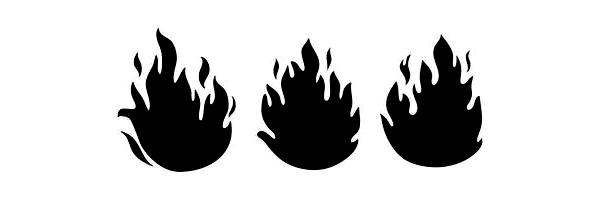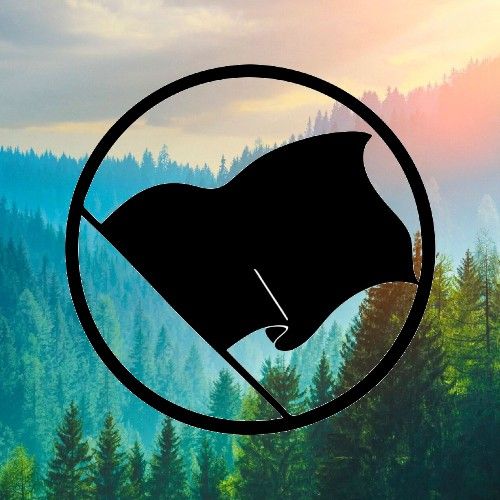
philosophy; justice, guilt
@adhdidact oh! okay, yeah, i totally think there can be conceptions of justice outside of the state. my initial post is trying to work from the state's conception of justice (i refer to it as "our's society's conception, i think") to break it apart to start to see if there are workable aspects of it for maybe a new conception of justice. it's cool we're on the same page with that~
philosophy; justice, guilt
@adhdidact just as a sidenote; can you explain what you mean? what recognized subjects enact justice in our world? i'm not trying to say you're wrong in any way, i'm just curious. from my perspective, state sovereignty can't recognize justice outside of itself except in the case of other sovereign states, in which case, since leviathan exists as territory, jurisdiction reigns.
philosophy; justice, guilt
@FinalOverdrive are there not times where the "survivor" or rather the "victim of a crime" is the one that needs to be transformed?
when settlers spread across north america, if an indigenous person attacked or killed a settler, do we really want to say that the indigenous person needs to be "transformed" by the "justice" of the settlers?
this is why i do not believe that justice is about the soul of individuals needing to be transformed. the most peaceful and law abiding settler can still perpetrate heinous acts just by their very existence within their own system of laws.
and sometimes, someone violent, someone transgressive can be, in their acts, aligned more in accordance with "justice" and "restoration" than any law abiding citizen.
@PseudoFaun these are so good omg
The picture was taken by a plane passenger as they passed over the burning chemicals from the #ohio train derailment.
philosophy; justice, guilt
no, i shouldn't say i know you better than you. that was wrong of me. i should've first assumed i misunderstood or that you misunderstood and worked to clarify and rectify.
but, what i'm trying to say, i think is, maybe making things right isn't about being a hero that maybe it's more about showing the right kind of kindness, lending the right kind of hand.
i don't care the terms we put it in, right vs wrong, ethical vs unethical... there are things i find intolerable in the world. i am in agreement with you to the extent that, to a very very large extent we are determined by forces beyond our control. but, outside of absolving oneself of the potential of searching for possibilities, i have never seen a compelling reason to act as if things are purely deterministic, as if i have absolutely no say in the choices i will make.
when someone experiences abuse, say, a child at the hand of their parents, how we, the others around, understand and treat that child can transform how that child understands what happened. and thus, can transform how the child interacts with their feelings about it, and the choices they feel like they have the power to make from it.
i don't believe this is unique to children, and i don't believe what needs to be rectified is unique to abuse.
the violences we experience and the violences we inflict ripple through time. they change us and they change others.
when the police kill children in their neighborhoods that changes the neighborhood.
when value abstracts things, which exist relationally in the actual world, to numbers in a virtual world, and act on this knowledge, under this paradigm, and thus destroy the world around them, this changes those who relied on that world.
we can't give any community their dead child back. the violence happens. it changes us. would it "right the wrong" anymore to inflict violence on those who committed it? i don't think so, not inherently.
if it is the history of the world that determines us, then in those terms, i believe it is the history of the world that can be mended. not in one fell revolutionary swoop, but in every moment. each moment, especially moments spent with others, as the eye of the needle through which the transformation of history passes through by our hand.
if we find nothing intolerable and refuse to act on anything beyond ourselves we have already lost to domination.
@gayfesh oh god it's hard for me to start too. activity inertia or something!
philosophy; justice, guilt
@ZiaNitori i'm sorry to say, but at this moment and my understanding of what you mean, i can't hope you reach that aspiration.
philosophy; justice, guilt
@ZiaNitori idk i've known you for a long time and i don't believe you. i don't believe this angle you're playing right now.
philosophy; justice, guilt
@ZiaNitori you don't think it's, in some way, intolerable, unacceptable, wrong, for people to be kidnapped and held against their will? you have absolutely 0 values that lead you to believe that is something that shouldn't happen? something that you want to act to make not happen? something you want to prevent from happening?
you experienced it, thought "oof ouch owie, this hurts, i need to get out of here" and never once conceptualized "maybe this machine is harmful, maybe it hurts others, maybe it doesn't have to be like this, maybe the world can be better"
philosophy; justice, guilt
@ZiaNitori in all honesty zia, i dont think i believe you believe any of that.
philosophy; justice, guilt
@ZiaNitori i'm curious zia, do you think there is wrong in the world? and do you think wrong can be righted? (and to be clear, i don't mean any sort of objective and pure wrong)
philosophy; justice, guilt
i've been asking questions off and on the last few weeks about justice. nothing particularly incisive, just trying to get away from tired framings that left me wanting... justice has felt a fraught concept for me for some time and i want to elaborate why, and see what is salvageable in it.
who or what is the subject that can enact justice?
who or what is the object of justice?
what is the method of justice?
what is transformed by justice?
in our society, the Subject that enacts recognized and "legitimate" justice is The State. so what is the object of The State's justice? prison facilities are often called "correctional" facilities. what is being corrected? the actions of the individuals deemed guilty.
what is guilt? how is guilt determined? is the method of justice the determination of guilt? or does justice come when the guilty are punished, corrected, fixed?
here, i think is the first great mistaken thesis of justice in the modern world; the attribution of guilt to individuals, as if their soul is blighted by their actions. as if it's their soul that needs to be cleansed by the unmoving gears of the State's Justice System.
what is the object of justice? well, at minimum, the object of the State's justice is the soul of the individual found guilty.
so far, in looking at our own world as it is, we see Justice as The State mediating a transformation of guilty individuals' souls.
so what is the method of transformation? the correctional facility. the separation from outer-society, and the monitoring and regulation of individuals activities at all times. here, the hope of getting out is determined by those in charge. the violent and armed enforcers who are in coordination with one another to keep prisoners acting the way they want even when an enforcer isn't around.
the method of transformation: forced submission. violence til compliance.
the justice of our world aspires, at its best, to be transformative domination.
how can we ever hope to be free from the consequences of domination if our own justice starts from premises resembling these?
philosophy; justice, guilt
i've been asking questions off and on the last few weeks about justice. nothing particularly incisive, just trying to get away from tired framings that left me wanting... justice has felt a fraught concept for me for some time and i want to elaborate why, and see what is salvageable in it.
who or what is the subject that can enact justice?
who or what is the object of justice?
what is the method of justice?
what is transformed by justice?
in our society, the Subject that enacts recognized and "legitimate" justice is The State. so what is the object of The State's justice? prison facilities are often called "correctional" facilities. what is being corrected? the actions of the individuals deemed guilty.
what is guilt? how is guilt determined? is the method of justice the determination of guilt? or does justice come when the guilty are punished, corrected, fixed?
here, i think is the first great mistaken thesis of justice in the modern world; the attribution of guilt to individuals, as if their soul is blighted by their actions. as if it's their soul that needs to be cleansed by the unmoving gears of the State's Justice System.
what is the object of justice? well, at minimum, the object of the State's justice is the soul of the individual found guilty.
so far, in looking at our own world as it is, we see Justice as The State mediating a transformation of guilty individuals' souls.
so what is the method of transformation? the correctional facility. the separation from outer-society, and the monitoring and regulation of individuals activities at all times. here, the hope of getting out is determined by those in charge. the violent and armed enforcers who are in coordination with one another to keep prisoners acting the way they want even when an enforcer isn't around.
the method of transformation: forced submission. violence til compliance.
the justice of our world aspires, at its best, to be transformative domination.
how can we ever hope to be free from the consequences of domination if our own justice starts from premises resembling these?
@errante on whose account does justice transform our future acts?
A wandering deer, building shrines along the way.
